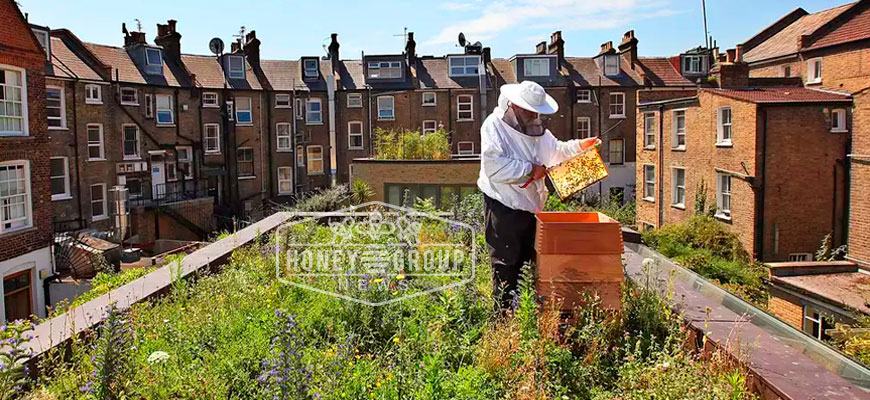The popularity of urban beekeeping is not helping to make up for declining countryside populations, according to new research.
The report also found that city-dwelling honey bees are three times less likely to survive than their feral cousins. This raises significant questions about the longer-term outlook for bees as intense urbanisation reduces habitat around the world and urban beekeeping helps to plug the gap.
Researchers from North Carolina State University analysed 15 feral colonies living in trees or buildings without human contact and a further 24 managed by beekeepers in urban, suburban and rural areas in and around the city of Raleigh.
The researchers found that those colonies closer to urban centres had higher levels of disease than those in rural areas because there were more viruses and bacteria present and they spread more easily.
It also found that colonies managed by beekeepers had a greater prevalence of disease than wild ones – meaning that those colonies living in cities and kept by beekeepers were particularly vulnerable to disease.
“We think that the higher pathogen pressure [likelihood of disease] in urban areas is due to increased rates of transmission,” said Professor David Tarpy of North Carolina State University. “This might be because bee colonies have fewer feeding sites to choose from in urban areas, so they are interacting with more bees from other colonies.” He said higher temperatures may also be speeding up the spread of disease.
“Honey bees are important pollinators and play a significant role in our ecosystems and our economy. Now we know what is happening, the next step is to begin work on understanding why it is happening,” said Steve Frank, also at North Carolina State University.
“Overall, we found that the probability of worker bee survival in laboratory experiments declined threefold in bees collected from urban environments, compared with those collected in rural environments,” said Mr Frank.
Bee populations are tumbling all over the world as a result of habitat loss, global warming and fertilisers. This is causing alarm among environmentalists because bees are responsible for pollinating a large portion of the food we eat.
The paper, Urbanisation Increases Pathogen Pressure on Feral and Managed Honey Bees, is published in the science journal Plos One.
 Certificate Analisis
Certificate Analisis


